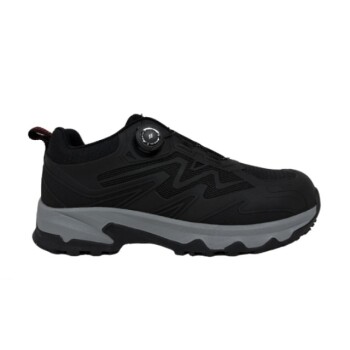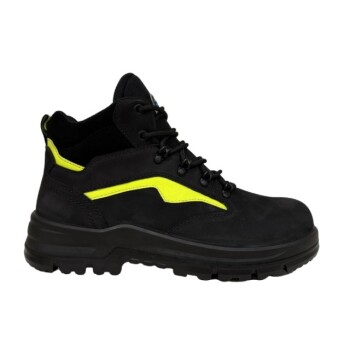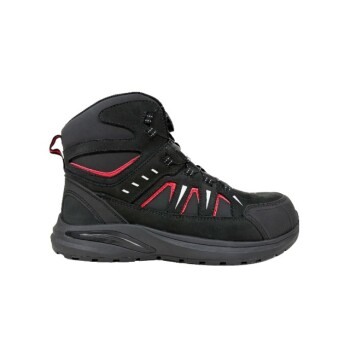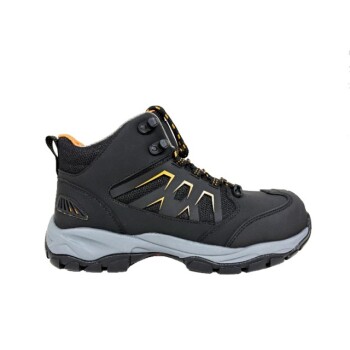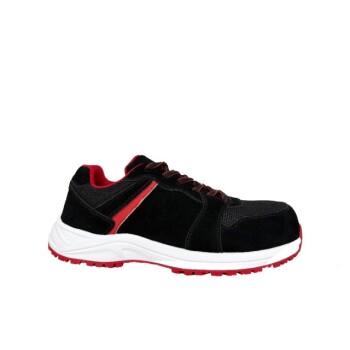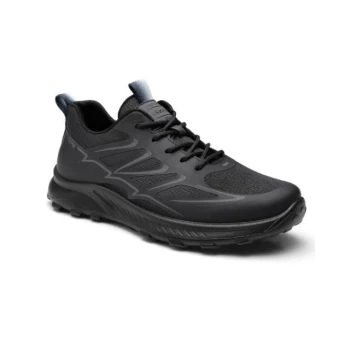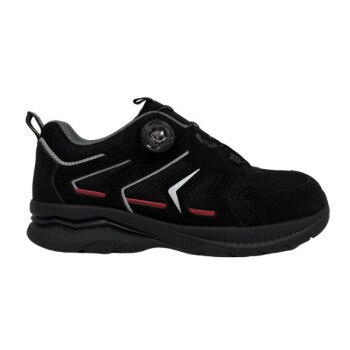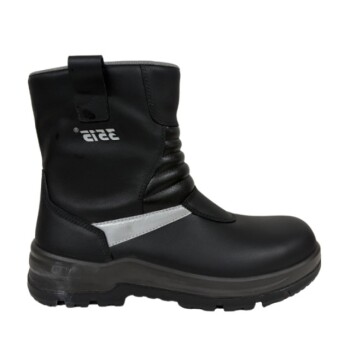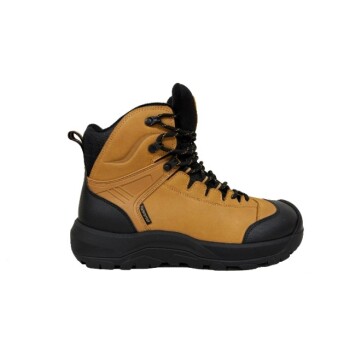The fundamental importance of slip-resistant shoes lies in their ability to drastically reduce the risk of preventable injuries. They are an essential piece of personal protective equipment specifically engineered to provide superior traction on wet, oily, or otherwise slippery surfaces, making them critical in both professional and everyday environments where falls pose a significant threat.
Slip-resistant footwear is not merely about having a better grip. It is an engineered safety system that combines specialized sole materials and advanced tread designs to maintain stability on hazardous surfaces, directly addressing one of the leading causes of non-fatal injuries.
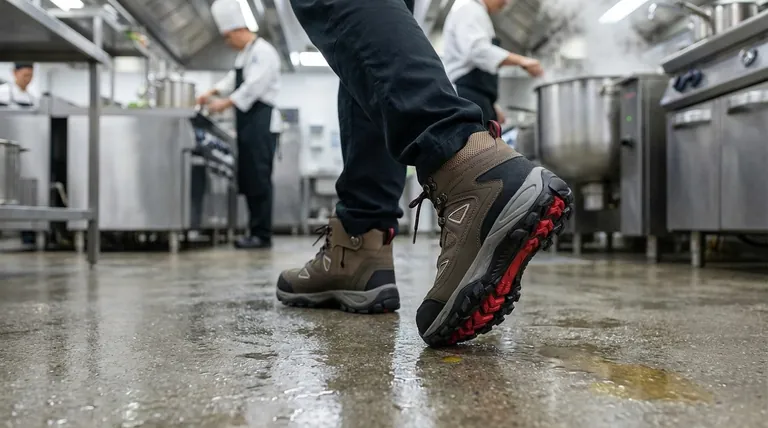
How Slip-Resistant Shoes Engineer Safety
To understand their importance, you must first understand that these shoes are fundamentally different from standard footwear. Their design is a deliberate response to the physics of a slip.
The Foundation: Sole Material
Standard shoes often use harder, less-pliable materials for durability. Slip-resistant shoes, however, typically use a softer rubber or synthetic compound that offers a much higher coefficient of friction, allowing it to better grip a walking surface.
This pliability enables the sole to make more effective contact with the ground, especially on a microscopic level, increasing the force required to initiate a slip.
The Critical Role of Tread Design
The pattern on the bottom of the shoe is its most critical feature. Unlike the aesthetic patterns on fashion shoes, a slip-resistant tread is designed to channel liquids away from the sole.
These patterns, often featuring small hexagons or circles, create a system of channels. When you step on a wet surface, this design pushes water or oil outward, allowing the sole to make direct contact with the solid ground beneath, which is crucial for preventing hydroplaning.
More Than Just a Sole: Overall Construction
True slip-resistant shoes are also built for durability and support in demanding conditions. They often feature reinforced construction, sturdy materials, and water-resistant uppers. This holistic design ensures the shoe not only prevents slips but also protects the foot and provides the stability needed for long hours of standing or walking.
Who Benefits Most From This Technology?
While anyone can benefit from added stability, certain groups rely on this technology for their fundamental safety.
High-Risk Professional Environments
The most obvious beneficiaries are professionals in high-risk industries. According to the CDC, slips, trips, and falls are the third most common cause of non-fatal work-related injuries.
This includes workers in food service and kitchens (grease and water), medical settings (spills and polished floors), and industrial factories (oils and lubricants), where such footwear is often a mandatory safety requirement.
Everyday Fall Prevention
Beyond the workplace, slip-resistant shoes are crucial for older individuals, for whom a fall can have severe consequences. They provide confidence and stability during daily activities.
They are also essential for anyone navigating potentially slick environments, from hikers on wet trails to people walking on icy sidewalks.
Understanding the Limitations and Realities
To make an informed decision, it's vital to recognize what these shoes can and cannot do. This objectivity is key to true safety.
"Resistant," Not "Proof"
The term is "slip-resistant," not "slip-proof." No shoe can completely eliminate the risk of a fall. However, properly designed footwear significantly reduces this risk, giving you a critical safety advantage.
The Importance of Condition and Fit
The effectiveness of a slip-resistant shoe degrades over time. As the specialized tread wears down, its ability to channel liquids and grip surfaces diminishes. A shoe must be replaced when its tread is visibly worn.
Furthermore, a poor fit can compromise balance, negating the benefits of the sole.
Look for Certified Performance
The most reliable way to ensure a shoe's effectiveness is to look for explicit slip-resistant labeling. This often indicates the footwear has been tested against a specific safety standard, providing a verified level of performance you can trust.
Making the Right Choice for Your Needs
Selecting the right shoe depends entirely on your specific context and goals.
- If your primary focus is workplace safety: Prioritize shoes with a certified slip-resistance rating and a tread pattern designed for the specific contaminants in your environment (e.g., oil, water).
- If your primary focus is everyday stability for yourself or an older individual: Look for a combination of a quality rubber sole, a supportive and comfortable structure, and a secure fit to encourage consistent wear.
- If your primary focus is outdoor activities like hiking: Seek shoes with deep, aggressive tread patterns (lugs) designed for uneven terrain, which inherently provide excellent grip on wet natural surfaces.
Ultimately, choosing to wear appropriate slip-resistant footwear is a direct and proactive investment in your personal safety and stability.
Summary Table:
| Feature | Benefit | Key For |
|---|---|---|
| Soft Rubber Sole | High friction on wet/oily surfaces | Preventing slips |
| Channeling Tread | Pushes liquids away for ground contact | Kitchen & medical floors |
| Reinforced Build | Durability and support for long hours | Industrial & service jobs |
| Certified Rating | Verified performance against safety standards | Ensuring workplace compliance |
Protect Your Workforce with Professional-Grade Safety Footwear
As a large-scale manufacturer, 3515 produces a comprehensive range of certified slip-resistant footwear for distributors, brand owners, and bulk clients. Our production capabilities encompass all types of safety shoes and boots engineered for the demanding environments of food service, healthcare, and industrial settings.
We provide the durability, certified performance, and specialized designs your customers rely on to prevent injuries and ensure compliance.
Ready to equip your business with reliable safety footwear? Contact our team today to discuss your specific needs and volume requirements.
Visual Guide
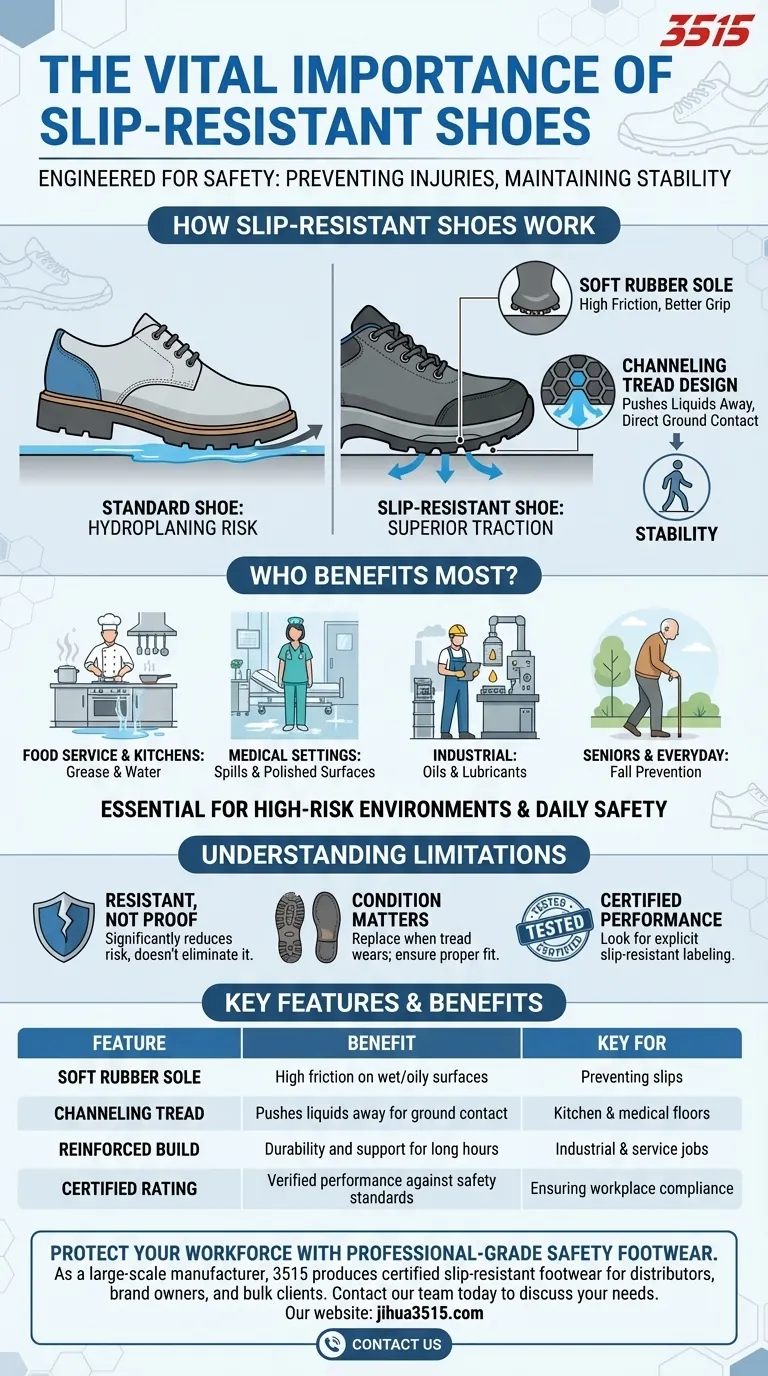
Related Products
- Safety Footwear Wholesale Manufacturer for Custom OEM/ODM Production
- Advanced KPU Athletic Safety Shoe with Steel Toe Cap Anti-Slip Rotary Lacing System
- Wholesale Premium Waterproof Nubuck Safety Shoes Boots
- Wholesale Durable Safety Boots | Custom Steel Toe & Puncture-Resistant Manufacturing
- Wholesale Customizable Safety Boots Durable & Protective Footwear Manufacturing
People Also Ask
- What are the cultural perspectives on wearing shoes in the house? A Guide to Home Etiquette & Hygiene
- What cultural and environmental considerations are tied to wearing shoes indoors? Balance Hygiene, Tradition, and Foot Health
- What are OSHA approved shoes? Understanding the Correct Standards for Workplace Safety
- Is safety-toe as good as steel toe? Choose the Right Protection for Your Job
- Is it normal to wear shoes in the house? A Guide to Hygiene, Comfort & Culture

